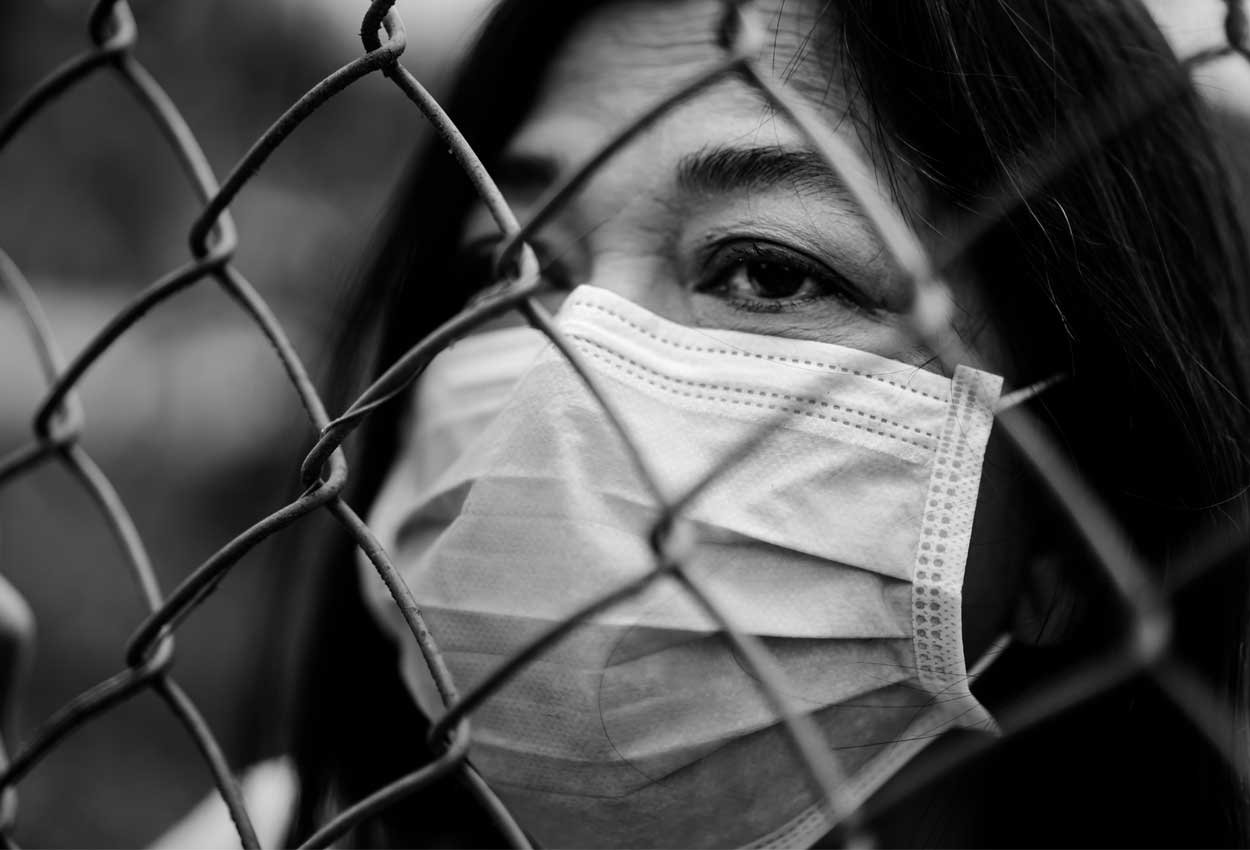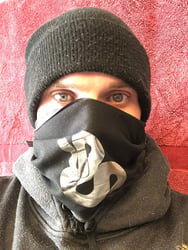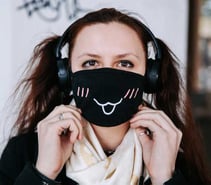
It’s hard to breathe. It’s hot. I feel claustrophobic. It hurts my ears. It fogs up my glasses. No one looks human. It just reminds me of what’s out there.
Welcome to the weird world of COVID-19 where the new normal means keeping our distance from others and wearing a mask to cover your face.
It shouldn’t bother us so much, but it does. Why?
As we wrote in another blog, Strategies for Patients with Mask Anxiety in Radiation Oncology, the answer may be a combination of both psychological (feelings of vulnerability, uncertainty, fear) and physiological (rapid heartbeat, rapid breathing, breaking out in sweats) responses.
For many private citizens, it’s an added stressor of the pandemic and a physical reminder of how much our lives have changed and become socially detached from each other. For healthcare providers, it’s a daily reminder of the fine line between life and death.
 Physiologically, the area of the face that is covered by protective face mask (PFM) happens to be very thermosensitive - an increase of temperature in the facial skin covered by PFM significantly influences thermal sensations of the whole body, making one feel hot.
Physiologically, the area of the face that is covered by protective face mask (PFM) happens to be very thermosensitive - an increase of temperature in the facial skin covered by PFM significantly influences thermal sensations of the whole body, making one feel hot.
People with underlying anxiety disorders or claustrophobia can feel be particularly affected with emotional discomfort of wearing PFM. For most people, however, the discomfort is subjective and tends to diminish as one gets used to wearing the mask.
Coping mechanisms
So, since it looks like we’ll be a mask-wearing society for a while yet, the CDC and mental health experts recommend the following strategies:
- Diaphragmatic breathing – breath through your nose and try breathing from the diaphragm – where your belly expands in and out instead of your chest going up and down. It helps to imagine that you have a balloon in your stomach. Take longer to exhale than inhale, perhaps inhaling for three seconds and exhaling for four.
- Repeat a mantra – a word, phrase, or even a sound that helps with focus. The mantra can take the form of reassurance and may be as simple as, “This too shall pass.” Focusing on gently repeating a mantra can help slow physical responses and regulate breathing.
- Practice mindfulness – pay attention to what is really occurring in the present moment. Instead of becoming immersed in self-created thoughts and worries.
- Try Aromatherapy inhaling essential oils such as lavender have long been used to relieve anxiousness and bring about a sense of calm relaxation. Alternately, Orange essential oil can help uplift spirits. Beekley Medical offers its Elequil aromatabs® for private use on the Elequil.com shop. Made with 100% pure essential oils, self-adhesive Elequil aromatabs are easy to use and last up to 8 hours.
 And, if I may add my own coping mechanism - consider your mask this year’s hottest new accessory and have some fun with it by making it your own. As private citizens, our protective face coverings don’t need to be medical grade.
And, if I may add my own coping mechanism - consider your mask this year’s hottest new accessory and have some fun with it by making it your own. As private citizens, our protective face coverings don’t need to be medical grade.
Despite being initially offended by the ads in my social media feeds for designed face masks, I’ve changed my mind about them. I went from seeing them as cashing in on a crisis and in poor taste to appreciating their anticipation of customer wants and needs (must be the marketer in me).
 As quarantine life drags on and this is going to be my face to world for a while, I’d rather have a design that makes me happy and fits my personality than something that looks clinical and reminds me of sickness.
As quarantine life drags on and this is going to be my face to world for a while, I’d rather have a design that makes me happy and fits my personality than something that looks clinical and reminds me of sickness.
Whatever coping mechanism(s) you use in order to wear your mask; we hope you all stay healthy and safe.
Related articles:

Mary Lang Pelton
Director of Marketing Communications
